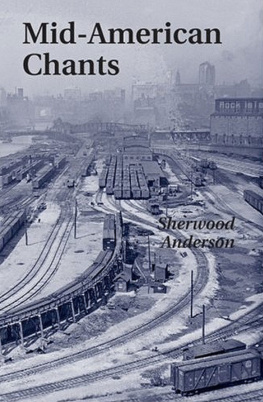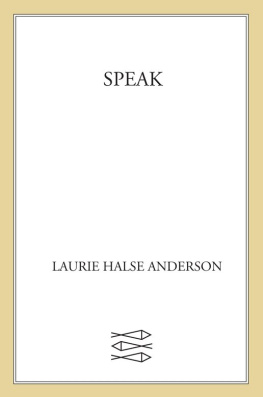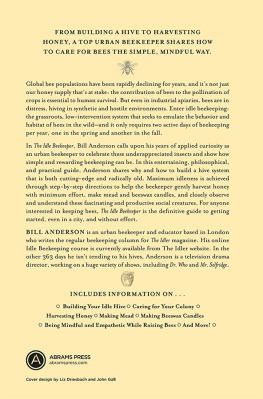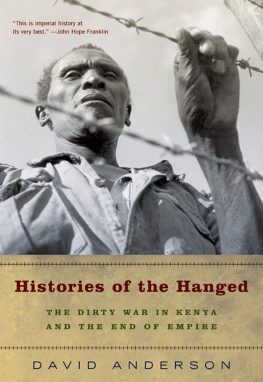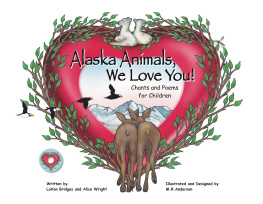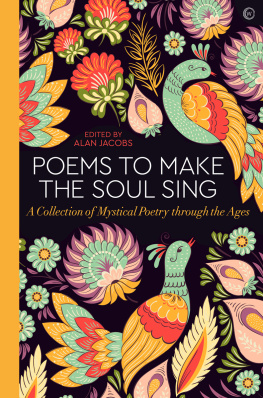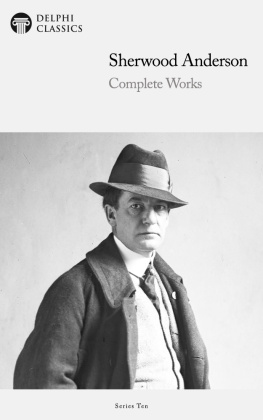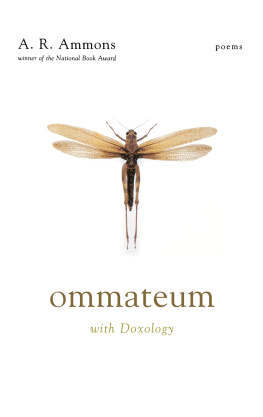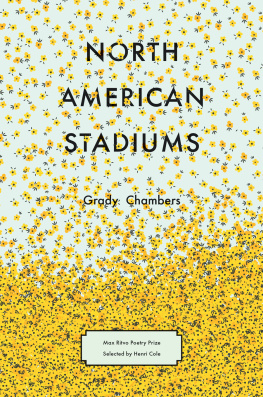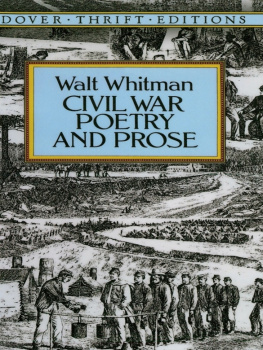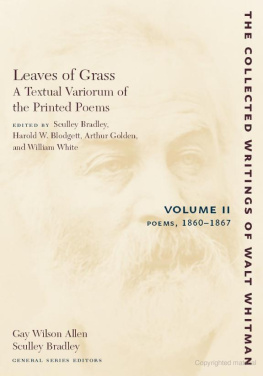Anderson - Mid-American Chants
Here you can read online Anderson - Mid-American Chants full text of the book (entire story) in english for free. Download pdf and epub, get meaning, cover and reviews about this ebook. year: 2011, publisher: Primedia E-launch, genre: Romance novel. Description of the work, (preface) as well as reviews are available. Best literature library LitArk.com created for fans of good reading and offers a wide selection of genres:
Romance novel
Science fiction
Adventure
Detective
Science
History
Home and family
Prose
Art
Politics
Computer
Non-fiction
Religion
Business
Children
Humor
Choose a favorite category and find really read worthwhile books. Enjoy immersion in the world of imagination, feel the emotions of the characters or learn something new for yourself, make an fascinating discovery.
- Book:Mid-American Chants
- Author:
- Publisher:Primedia E-launch
- Genre:
- Year:2011
- Rating:5 / 5
- Favourites:Add to favourites
- Your mark:
- 100
- 1
- 2
- 3
- 4
- 5
Mid-American Chants: summary, description and annotation
We offer to read an annotation, description, summary or preface (depends on what the author of the book "Mid-American Chants" wrote himself). If you haven't found the necessary information about the book — write in the comments, we will try to find it.
Mid-American Chants — read online for free the complete book (whole text) full work
Below is the text of the book, divided by pages. System saving the place of the last page read, allows you to conveniently read the book "Mid-American Chants" online for free, without having to search again every time where you left off. Put a bookmark, and you can go to the page where you finished reading at any time.
Font size:
Interval:
Bookmark:
MID-AMERICAN CHANTS BY SHERWOOD ANDERSON
TO MARIONMARGARET ANDERSON THIS BOOK ISDEDICATEDAfter Erwin's business failed, the family wasforced to move frequently, finally settling down at Clyde, Ohio , in1884. Partly as a result of these misfortunes, young Sherwood foundvarious odd jobs to help his family, which earned him the nickname"Jobby." He left school at age 14. Anderson moved to Chicago near his brother Karl's home andworked as a manual laborer until near the turn of the century, when he enlistedin the United States Army. He was called up but did not see action in Cubaduring the Spanish-American War. After the war, in 1900, he enrolled at WittenbergUniversity in Springfield, Ohio. Eventually he secured a job as a copywriter inChicago and became more successful.
In 1904, he married Cornelia Lane, the daughter of a wealthyOhio family. He fathered three children while living in Cleveland, Ohio, andlater Elyria, Ohio, where he managed a mail-order business and paintmanufacturing firms. In November 1912 he suffered a mental breakdown anddisappeared for four days. He was found in a drugstore in Cleveland, havingwalked almost thirty miles. Soon after, he left his position as president ofthe Anderson Manufacturing Co. in Elyria, Ohio, and left his wife and threesmall children to pursue the writer's life of creativity.
Anderson describedthe entire episode as "escaping from his materialistic existence,"which garnered praise from many young writers, who used his "courage"as an example. Anderson moved back to Chicago, working again for a publishingand advertising company. In 1914, he divorced Lane and married TennesseeMitchell.
Although his short stories were very successful, Anderson felt theneed to write novels. In 1920, he published Poor White ,which was rather successful. In 1923, Anderson published Many Marriages ,the themes of which he would carry over into much of his later writing. Thenovel had its detractors, but the reviews were, on the whole, positive. F.Scott Fitzgerald , for example, considered Many Marriagesto be Anderson's finest novel. Beginning in 1924, Anderson lived in the historic PontalbaApartments (540-B St.
Peter Street) adjoining Jackson Square in New Orleans.There, he and his wife entertained William F aulkner , Carl Sandburg , Edmund Wilson and other literary luminaries. Of Faulkner, in fact, he wrote his ambiguous andmoving short story "A Meeting South," and, in 1925, wrote Dark Laughter ,a novel rooted in his New Orleans experience. Although the book is now out ofprint (and was satirized by Ernest Hemingway in his novel The Torrents of Spring ), it wasAnderson's only bestseller.
Anderson dedicated his 1932 novel, Beyond Desire, toCopenhaver. Although he was much less influential in this final writing period,many of his more significant lines of prose were present in these works, whichwere generally considered sub-par compared to his other works. "Beyond Desire", set during the 1929 Loray Mill Strike in Gastonia, NC, resulted in yet another satirical mention by Ernest Hemingway .Hemingway included a minor character in his 1937 novel ToHave and Have Not who is an author. This character is workingon a novel of Gastonia.
He was buried at Round Hill Cemetery in Marion,Virginia. His epitaph reads, "Life, Not Death, is the GreatAdventure." Anderson's final home, known as Ripshin, still stands in Troutdale,Virginia, and may be toured by appointment.
The flavor of many lives lived and of many goneweary to the end of life creeps into his voice. Words run out beyond the powerof words. There is unworldly beauty in the song ofhim who sings out of the souls of peoples of old times and places but thatbeauty does not yet belong to us. In MiddleAmerica men are awakening. Like awkward and untrained boys we begin to turntoward maturity and with our awakening we hunger forsong. But in our towns and fields there are few memory haunted places.
Here westand in roaring city streets, on steaming coal heaps, in the shadow offactories from which come only the grinding roar of machines. We do not singbut mut ter in thedarkness. Our lips are cracked with dust and with the heat of furnaces. We but mutter and feel our way toward thepromise of song. For this bookof chants I ask only that it be allowed to stand stark against the backgroundof my own place and generati on. Honest Americans willnot demand beauty that is not yet native to our cities and fields.
In secret amillion men and women are trying, as I have tried here, to express the hungerwithin and I have dared to put these chants forth only because I hope and believe they may find an answering and clearer call in thehearts of other Mid-Americans. Sherwood Anderson. Chicago , February 1918 .
I will tearthem into bits and throw them in the street. The streets of my city are full ofdark holes. I will hide my songs in the holes of the streets. In the da rkness of the night Iawoke and the bands that bind me were broken. I was determined to bring oldthings into the land of the new. A sacred vessel I found and ran with it intothe fields, into the long fields where t he cornrustles.
All of the people of m y time werebound with chains. They had forgotten the long fields and the standing corn.They had forgotten the west winds. Into the cities my people had gathered. They had becomedizzy with words. Words had choked them. They could not breathe.
On my kne es I crawled before mypeople. I debased myself. The excretions of their bodies I took for my food.Into the ground I went and my body died. I emerged in the corn, in the longcornfields. My head arose and was touched by the west wind. The light of old thi ngs, of beautiful old things, awoke in me.
In thecornfields the sacred vessel is set up. I will renew in my people the worship of gods. I will setup for a king before them. A king shall arise before my people. Thesacred vessel shall be filled with the sweet oil ofthe corn. The flesh of my body is become good.
Next pageFont size:
Interval:
Bookmark:
Similar books «Mid-American Chants»
Look at similar books to Mid-American Chants. We have selected literature similar in name and meaning in the hope of providing readers with more options to find new, interesting, not yet read works.
Discussion, reviews of the book Mid-American Chants and just readers' own opinions. Leave your comments, write what you think about the work, its meaning or the main characters. Specify what exactly you liked and what you didn't like, and why you think so.

